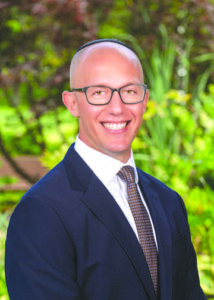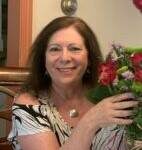
Rabbi Jason Bonder
Parshat Vayeitzei
My fourth year of rabbinical school was one of the most memorable of my life. My wife, Rina, and I lived in Tel Aviv, and we traveled weekly to Jerusalem for classes. We attended Shabbat services at Beit Tefilah Israeli. We finished each Shabbat with walks along the beach, watching the sun set into the Mediterranean Sea.
Rina and I had many discussions about our shared future during those unforgettable months in Israel. We dreamed of where we would live and of the work we would do. We dreamed of the household we would build together and the children who would be a part of it.
In this week’s Torah portion, Vayeitzei, we learn of the birth of almost all of Jacob’s children. Leah, Rachel, Bilhah and Zilpah, give birth to 11 sons and one daughter in this portion. With each birth, we learn more about the experiences of the parents through the names of their children.
The children born to Leah, the wife that Jacob loved less, tell the very sad tale of Leah’s longing for her husband’s love. The following is Leah’s stated reason for choosing the name Reuben for her firstborn. “It means: ‘God has seen my affliction’ it also means: ‘Now my husband will love me.’”
Rachel, Jacob’s true love, also tells her story through the birth of her children. Rachel was barren and she became jealous of her sister. Thus, when Rachel’s maidservant, Bilhah, bore a son, Rachel gave the following reason for naming the boy Naphtali. “A fateful contest I waged with my sister; yes, and I have prevailed.”
As I read these lines, I realized that, for years now, I have unwittingly shared something in common with Leah, Rachel, Bilhah and Zilpah. From the days of that dreamy year in Tel Aviv a decade ago, up until today, I have been guilty at times of seeing my children as supporting characters in my story.
A few weeks ago, those roles changed. It happened at the moment when I was invited to join the Philadelphia Jewish Federation’s Emergency Solidarity Mission to Israel in the wake of the terror attacks of Oct. 7.
Rina and I knew that I had to go. Yet considering the pros and cons was a harrowing experience for both of us. It was jarring for many reasons and my insight from this week’s portion added another reason to the mix. As Rina and I made our decision about this important moment in our story, we realized that it was our children who we saw in the lead roles. How would our decision affect their story? How would they feel about seeing their dad leave for Israel at such a precarious moment in history?
I have returned from Israel with two major takeaways. First and foremost, everything that I have described to you is on the periphery of this chapter in the history of the Jewish people. The main stage is in Israel, where I am proud to say that I saw firsthand how Israelis are displaying a resilience and strength that I will never be able to truly fathom.
My second takeaway brings us back to this week’s portion. Leah, Rachel, Bilhah and Zilpah teach us, through their mistakes, that our job as adults is to recognize that we are now cast in the supporting roles of our children’s story.
Vayeitzei reminds us that this world belongs to our children, and the way we live our lives will set the arc of their story. We are the supporting characters of their lives. Not the other way around, as Leah, Rachel, Bilhah, and Zilpah may have thought.
This fact is as important now as it has ever been. The way that we, as Jewish adults, respond both to the Oct. 7 terror attacks and the rising antisemitism here in America will influence how our children choose to write their stories.
Our strong support of Israel and the Jewish people will connect their story to Israel and to the Jewish people. What we do at this moment will leave a lasting mark on the never-ending Jewish story. Vayeitzei reminds us that in that never-ending story, our children are already the protagonists.
Jason Bonder is the associate rabbi of Congregation Beth Or in Maple Glen The Board of Rabbis of Greater Philadelphia is proud to provide diverse perspectives on Torah commentary for the Jewish Exponent. The opinions expressed in this column are the author’s own and do not necessarily reflect the view of the Board of Rabbis.





